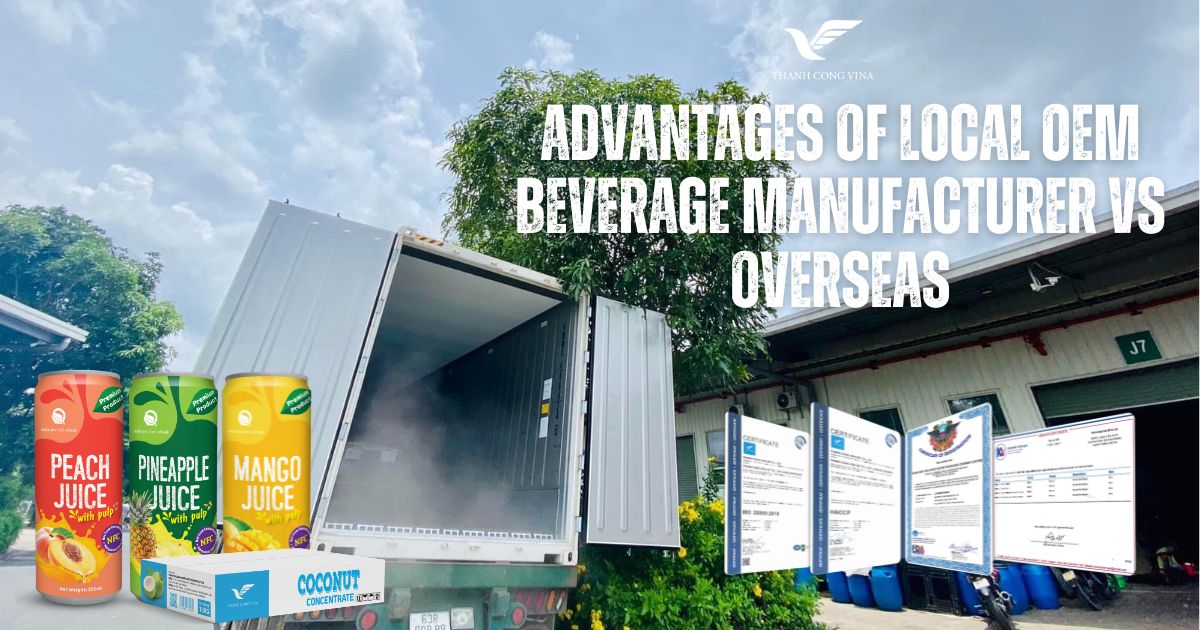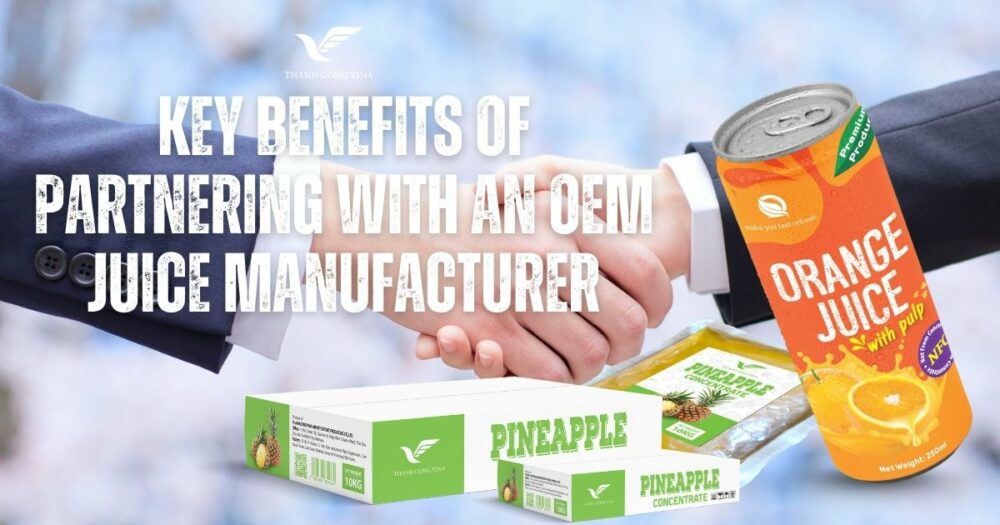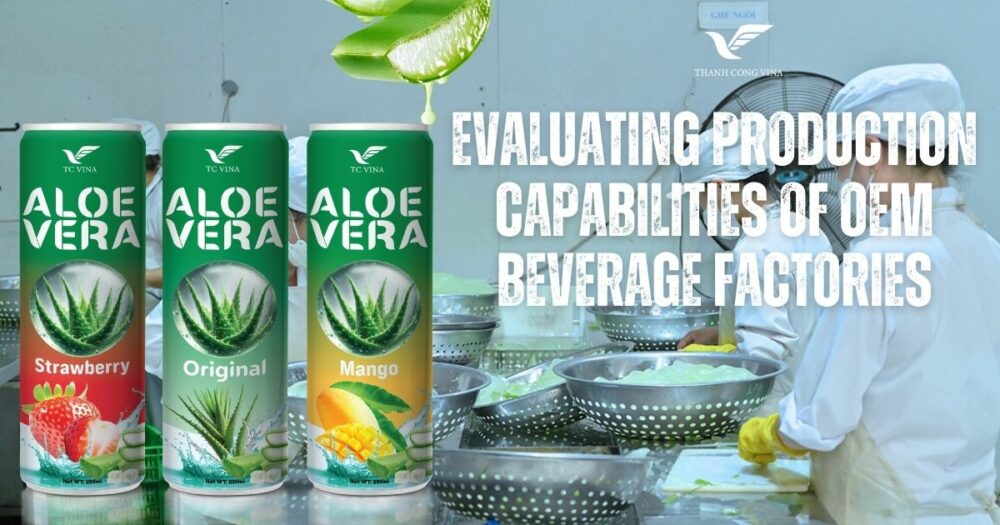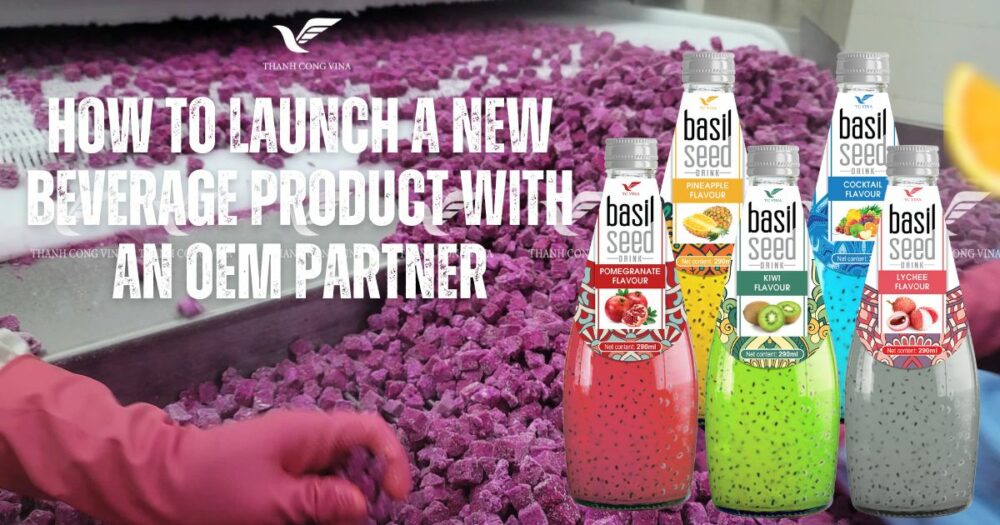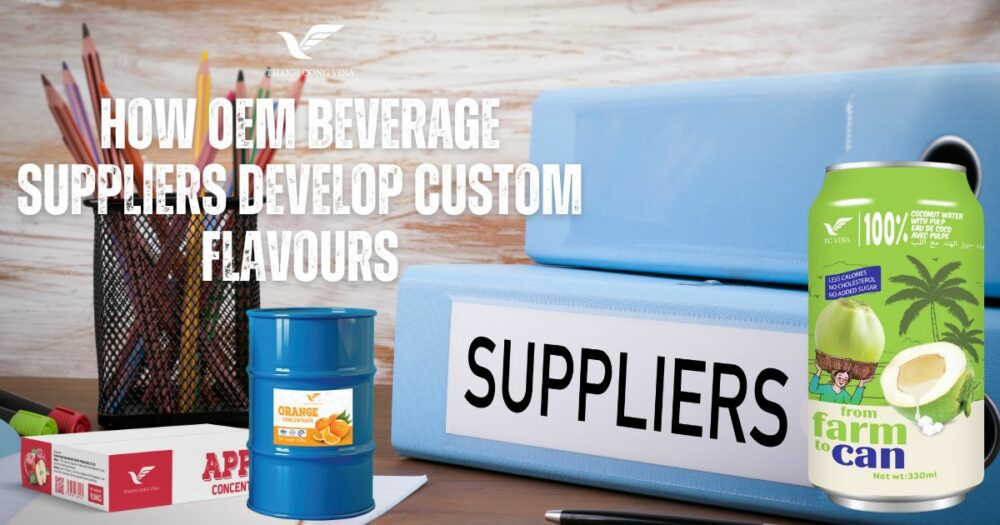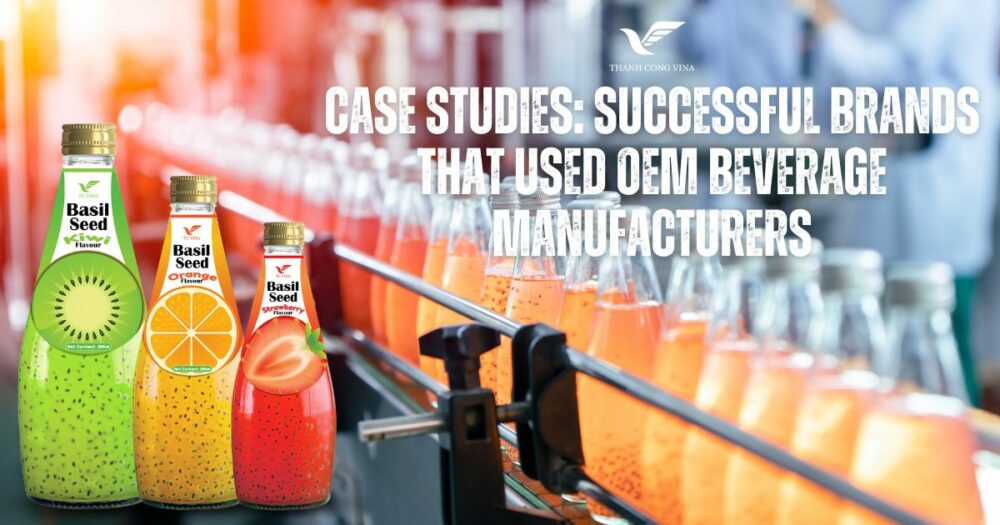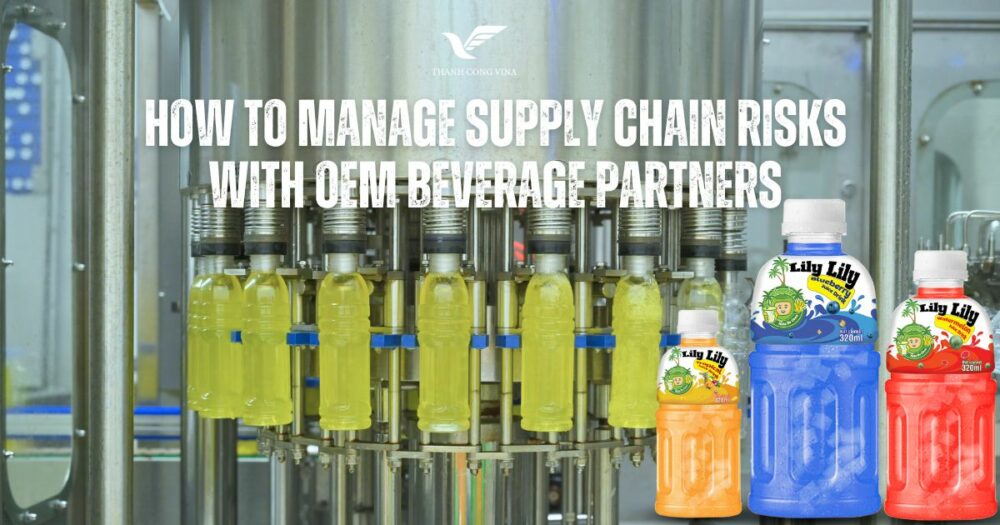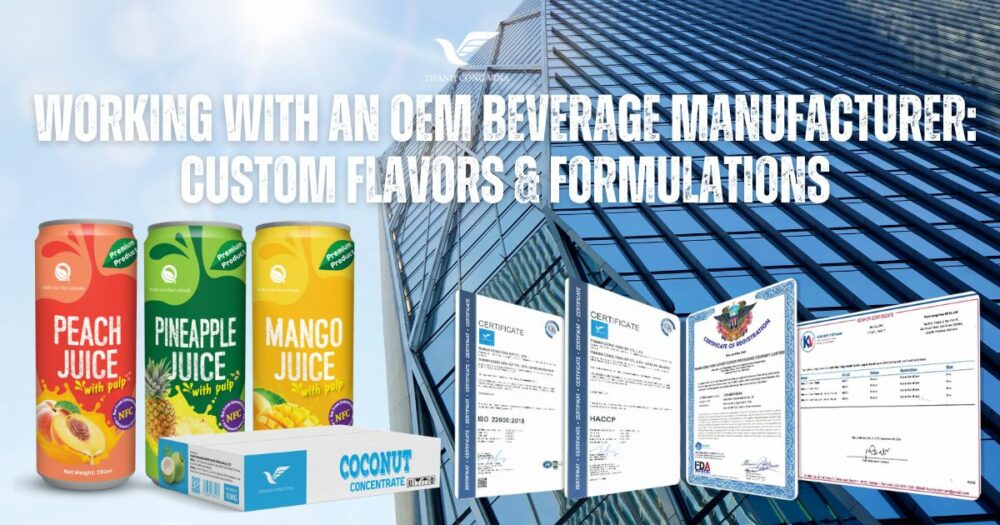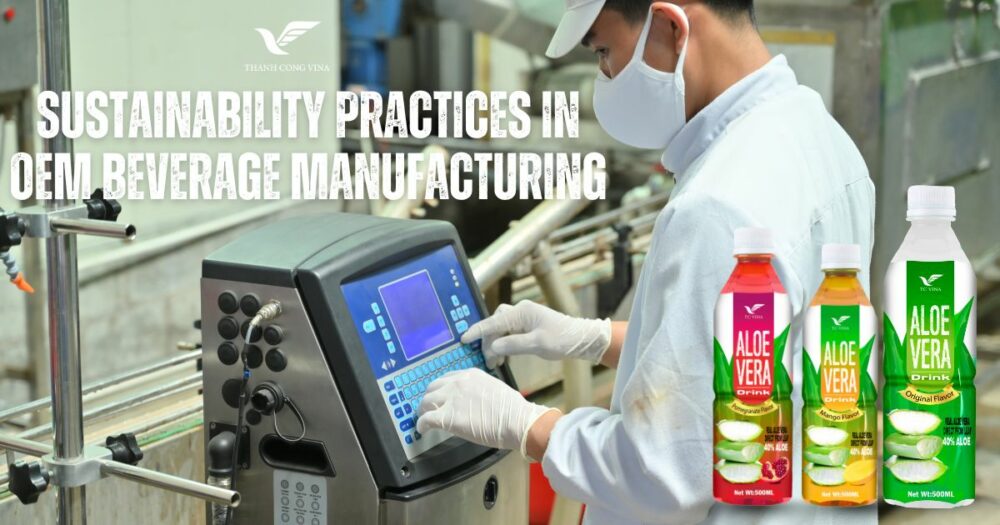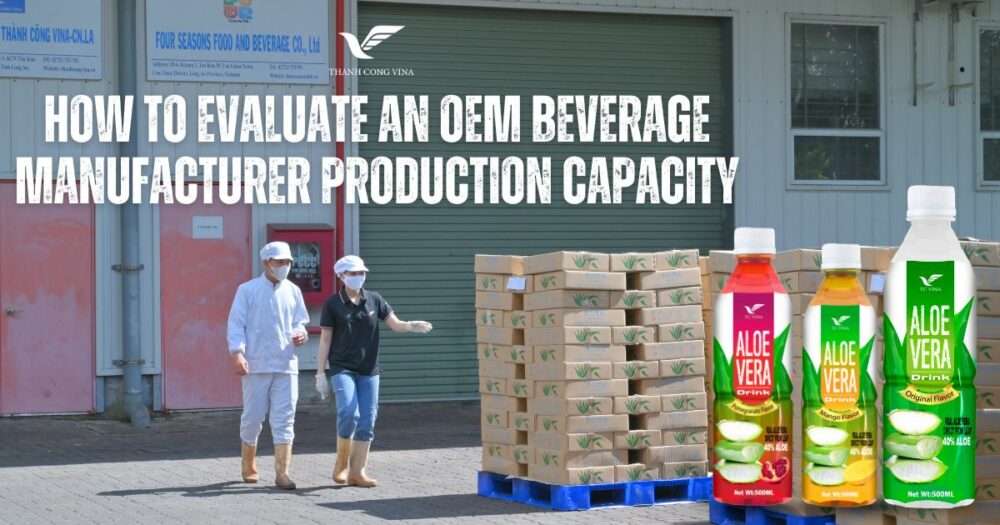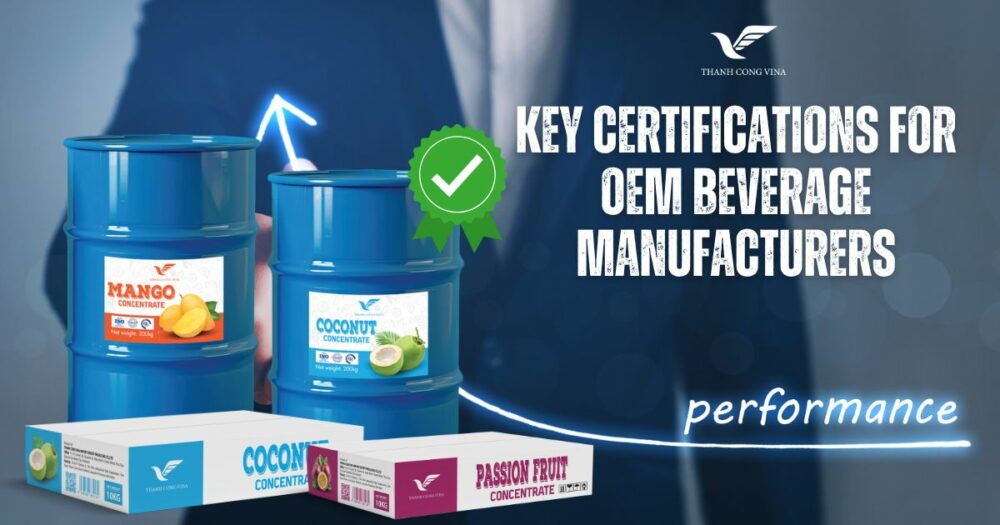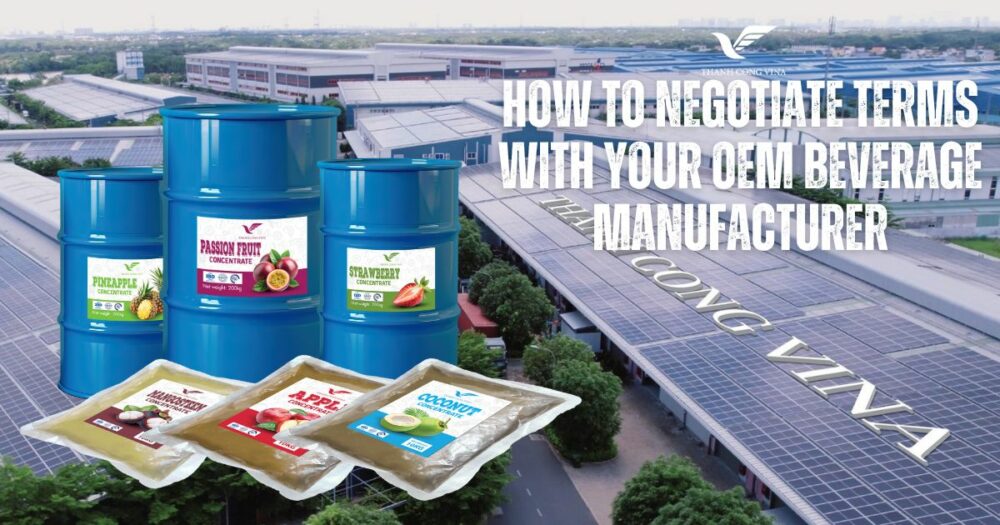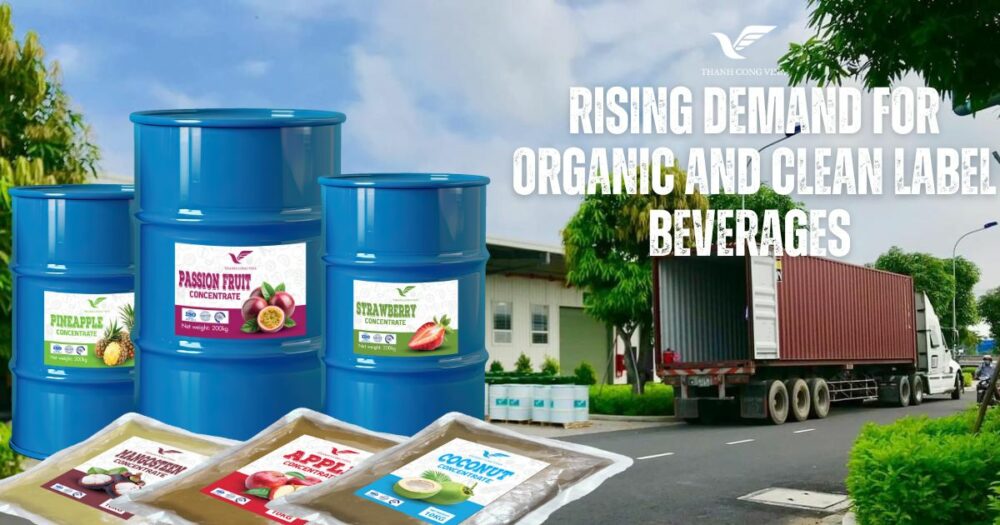In today’s dynamic beverage market, choosing the right OEM beverage manufacturer is one of the most important decisions for brands looking to launch or scale their product lines. Whether you are producing fruit juice, energy drinks, or functional beverages, the choice between a local OEM beverage manufacturer and an overseas producer has a direct impact on your cost, quality, flexibility, and overall brand success. While outsourcing production to foreign countries may seem appealing due to lower prices, local manufacturers offer critical advantages in communication, logistics, compliance, and customization.
This article explores the key differences between local and overseas OEM beverage partners and highlights why collaborating with a local OEM beverage manufacturer can offer long-term strategic benefits for beverage brands that value reliability, transparency, and quality control.
1. Understanding the OEM Beverage Manufacturing Model
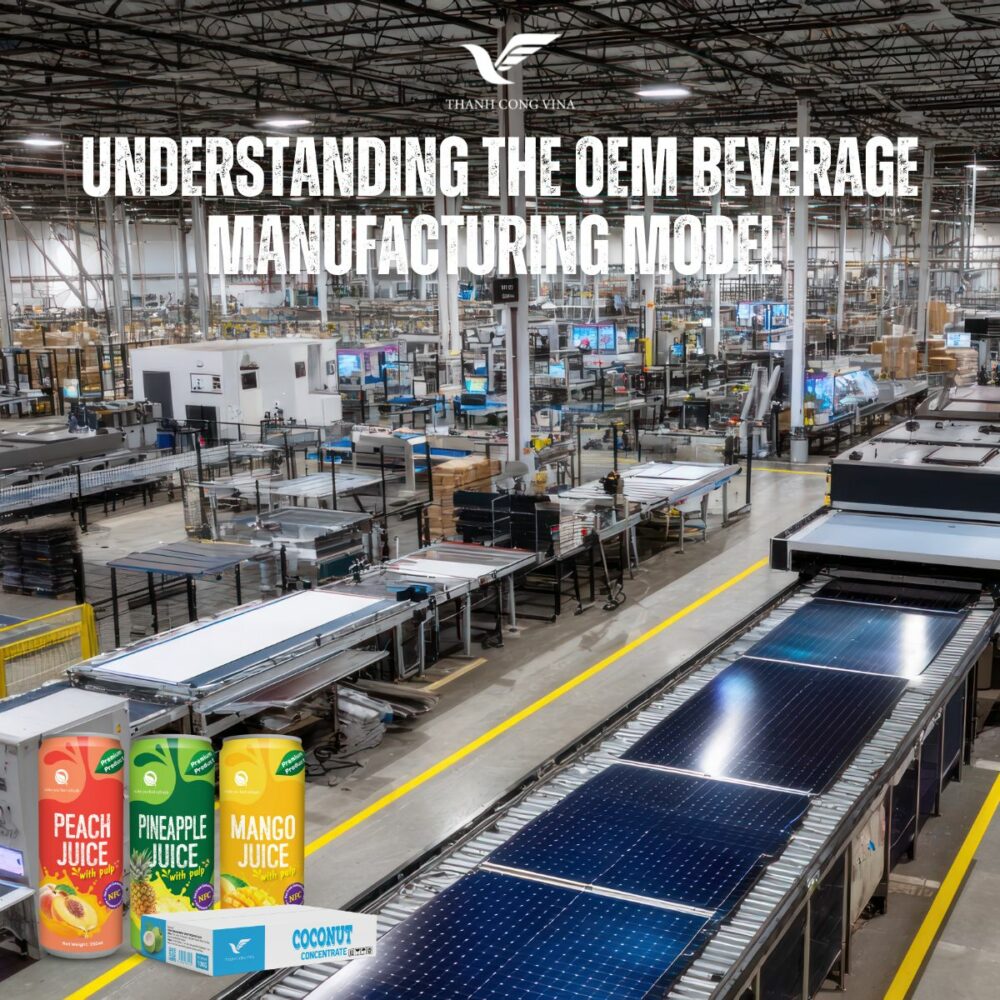
Understanding the OEM Beverage Manufacturing Model
What Is OEM Beverage Manufacturing?
OEM (Original Equipment Manufacturer) beverage manufacturing refers to a production arrangement in which a company develops and produces drinks based on another brand’s formulation, packaging, and label design. This allows beverage brands to focus on marketing and distribution while relying on professional manufacturers to handle production and compliance.
How It Differs from Private Labeling
While both OEM and private label manufacturing involve outsourced production, OEM emphasizes custom formulations, whereas private label often uses pre-existing recipes. OEM manufacturing gives brands greater flexibility to create unique beverages—such as low-sugar juices, plant-based drinks, or functional waters—tailored to their target consumers.
Why Beverage Brands Choose OEM Manufacturers
Modern beverage brands choose OEM manufacturers to save on infrastructure costs, leverage advanced technologies, and ensure consistent quality. OEM partnerships also simplify scalability—brands can increase production quickly as demand grows, without additional investments in machinery or labor.
2. The Strategic Benefits of Choosing a Local OEM Beverage Manufacturer
Better Communication and Coordination
Working with a local manufacturer eliminates language barriers and time zone challenges. Face-to-face meetings, instant feedback, and real-time adjustments become easier. This level of collaboration fosters better product innovation and faster response times during new product launches.
Faster Turnaround and Delivery
Proximity means shorter lead times for raw materials, production, and shipping. Local manufacturers can respond quickly to urgent orders, seasonal spikes, or sudden changes in consumer demand—giving your brand an edge in the competitive beverage market.
Easier Quality Monitoring
Local production allows for more frequent plant visits and hands-on quality checks. Brands can inspect production lines, review safety practices, and ensure compliance with local and international food standards. This visibility reduces the risk of production errors or contamination.
3. Challenges of Working with Overseas OEM Beverage Manufacturers
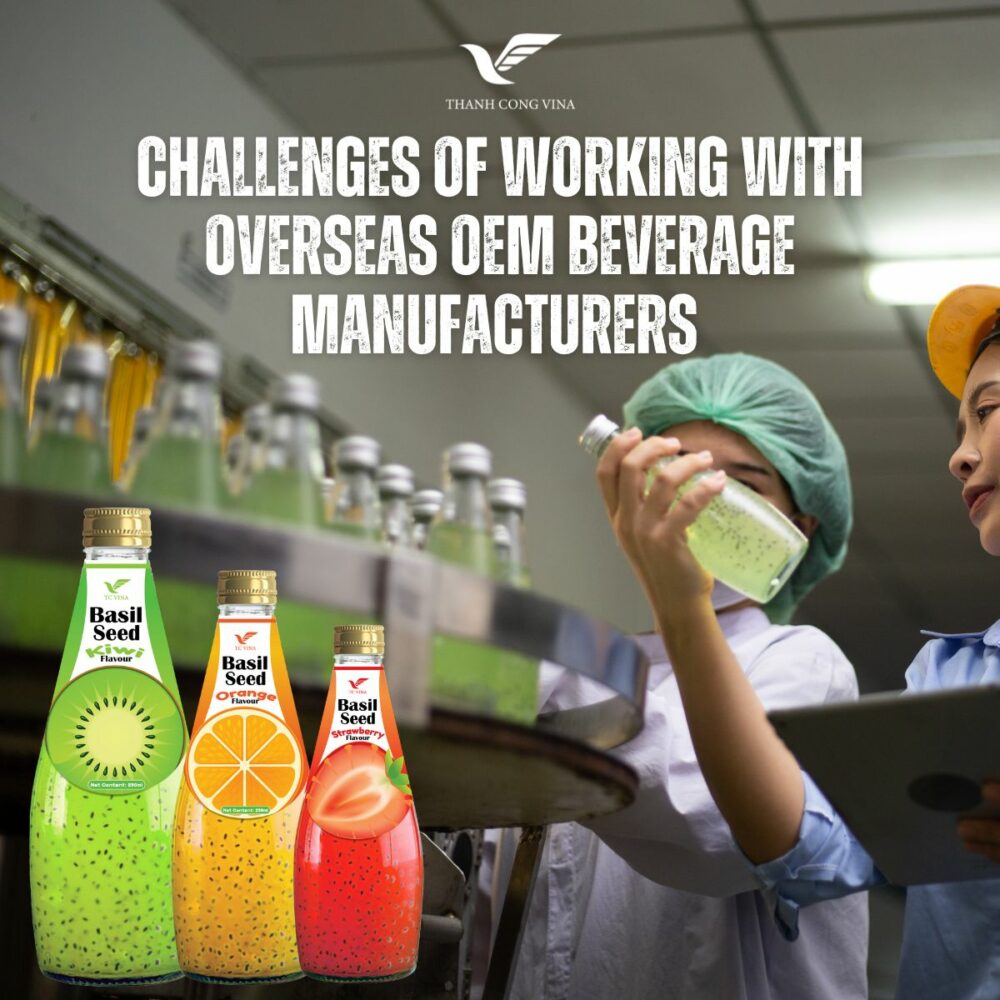
Challenges of Working with Overseas OEM Beverage Manufacturers
Logistical Complexities and Delays
Importing goods from abroad can involve long shipping times, customs delays, and unpredictable costs. For perishable or temperature-sensitive beverages, delays can reduce shelf life and compromise product quality.
Hidden Costs and Exchange Rate Risks
Although overseas production may appear cheaper, hidden expenses—such as tariffs, freight costs, and currency fluctuations—can offset savings. Brands often find that real total costs are higher than expected.
Compliance and Regulatory Gaps
Different countries have varying food safety and labeling regulations. Noncompliance can lead to shipment rejections, fines, or brand reputation damage. Managing these regulatory differences requires expertise that local manufacturers are better equipped to provide.
4. Comparing Quality Control Standards: Local vs Overseas
Local Manufacturers and Transparency
Local OEM beverage manufacturers typically adhere to national standards such as HACCP, ISO 22000, and GMP certifications. Regular audits by local authorities ensure compliance and transparency.
Overseas Quality Challenges
Overseas partners may operate under different or less stringent regulations. Without frequent visits or third-party verification, maintaining consistent quality becomes difficult, especially for beverages that require precise formulations and controlled environments.
Traceability and Product Safety
Local suppliers often have stronger traceability systems—from ingredient sourcing to final packaging. This traceability is vital for maintaining food safety and managing recalls if any issue arises.
5. Cost-Efficiency Beyond the Price Tag
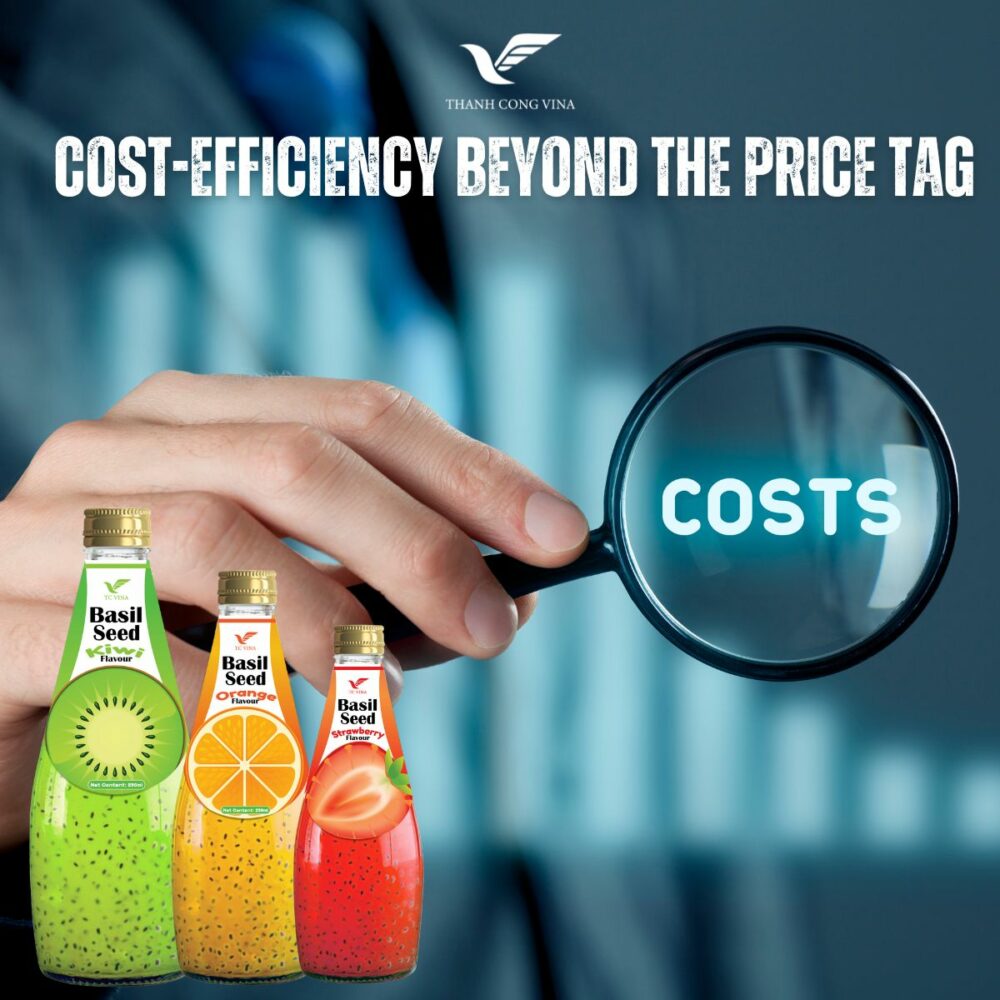
Cost-Efficiency Beyond the Price Tag
Long-Term Value Over Short-Term Savings
While overseas options may initially seem more affordable, local OEM partnerships provide better value through reduced transportation costs, fewer product losses, and improved brand credibility.
Sustainable Logistics and Carbon Footprint
Partnering with a nearby OEM beverage manufacturer supports sustainability by minimizing shipping distances and emissions. As consumers become more eco-conscious, local production adds marketing value to “green” beverage brands.
Supporting Local Economies
Working with a domestic partner helps strengthen local supply chains, generate jobs, and support community growth. This aligns with corporate social responsibility goals and can boost consumer trust.
6. Customization and Innovation Capabilities
Collaborative Product Development
Local OEM beverage manufacturers can collaborate more closely on R&D projects, flavor innovation, and market testing. This flexibility helps beverage brands adapt quickly to evolving consumer preferences.
Access to Local Ingredients
Local manufacturers often source ingredients from nearby farms or suppliers, ensuring freshness, lower costs, and regional authenticity—key differentiators in today’s health-focused beverage market.
Packaging and Design Adaptability
Shorter supply chains make it easier to experiment with packaging formats, bottle sizes, and labeling to fit local retail standards or sustainability goals.
7. Risk Management and Supply Chain Stability
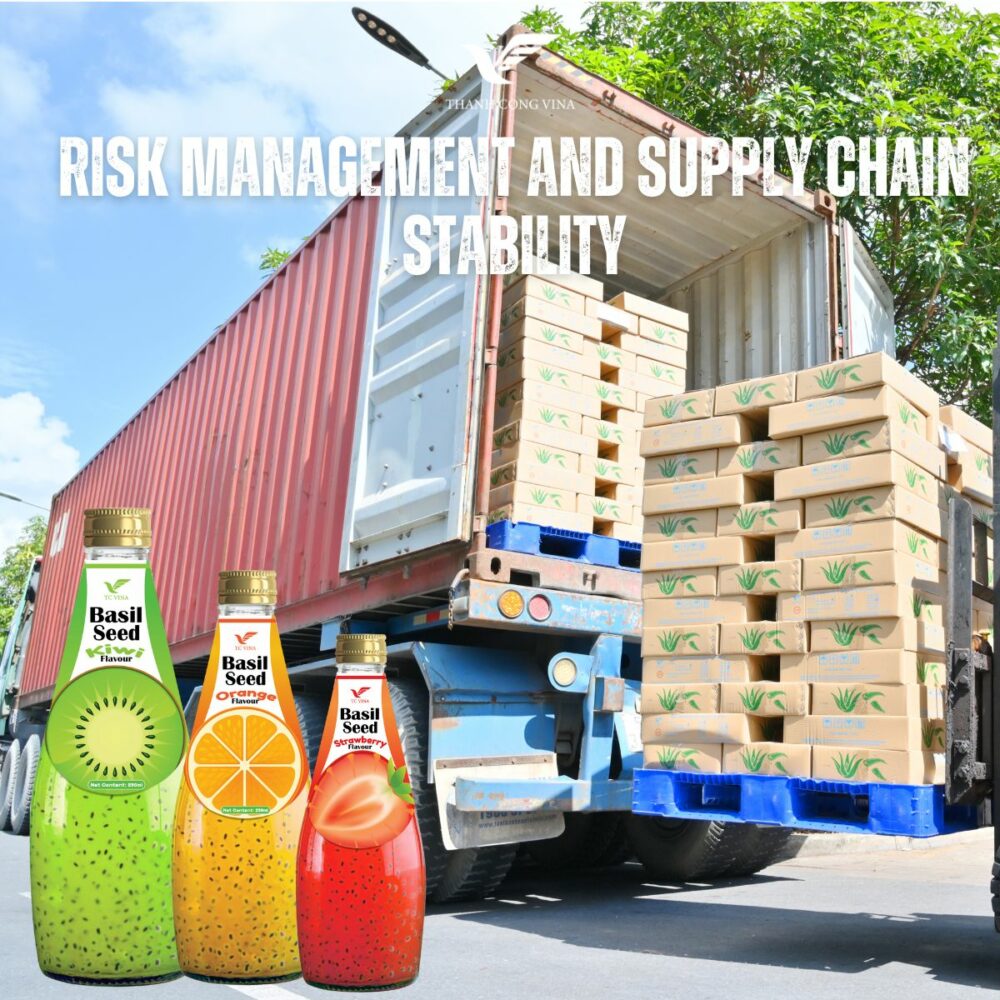
Risk Management and Supply Chain Stability
Fewer Global Supply Chain Disruptions
Events like pandemics, port closures, or geopolitical tensions can severely affect overseas supply chains. Local partnerships ensure stable access to materials and production schedules.
Legal and Contractual Protection
Domestic agreements are easier to enforce under local laws. Brands working with overseas partners often face complex arbitration procedures if disputes arise.
Transparency and Ethical Standards
Local OEM manufacturers typically maintain higher labor and environmental compliance levels. Transparent supply chains improve brand image and consumer confidence.
8. Choosing the Right Local OEM Beverage Manufacturer
Evaluate Certification and Capabilities
Ensure the manufacturer holds HACCP, ISO, HALAL, and FDA certifications. Verify their machinery, production scale, and R&D capabilities align with your beverage needs.
Visit the Facility and Assess Operations
Personal visits allow you to observe hygiene standards, bottling technology, and quality assurance systems firsthand. This due diligence prevents future quality or delivery issues.
Build Long-Term Partnerships
Establishing a strong, trust-based relationship ensures smoother communication, innovation opportunities, and better contract terms for future projects.
Conclusion
Partnering with the right OEM beverage manufacturer can determine the long-term success of your beverage brand. Local OEM partners provide distinct advantages in communication, flexibility, regulatory compliance, and product consistency. They also help brands reduce risks associated with international logistics and ensure faster market responsiveness.
For businesses seeking a reliable, transparent, and innovative partner, TCVina stands out as a trusted name in the beverage manufacturing industry. With extensive expertise in fruit juice concentrates, functional beverages, and natural drinks, Thanh Cong Vina delivers quality-driven OEM and private label services that meet international standards. By choosing a local partner who understands both your market and your product vision, you gain not only efficiency but also confidence in every bottle that carries your brand name.

